Winterizing livestock -- Why doesn't anyone talk about this?
Maggie_J
18 years ago
Related Stories

DECORATING GUIDESExpert Talk: Designers Open Up About Closet Doors
Closet doors are often an afterthought, but these pros show how they can enrich a home's interior design
Full Story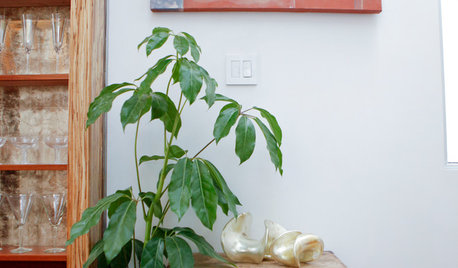
DECORATING GUIDESMeet a Houseplant That Doesn't Mind Neglect
Got better things to do than remember to water your houseplants on schedule? Schefflera will forgive and forget
Full Story
BEDROOMSThe Cure for Houzz Envy: Master Bedroom Touches Anyone Can Do
Make your bedroom a serene dream with easy moves that won’t give your bank account nightmares
Full Story
DECORATING GUIDESThe Cure for Houzz Envy: Guest Room Touches Anyone Can Do
Make overnight guests feel comfy and cozy with small, inexpensive niceties
Full Story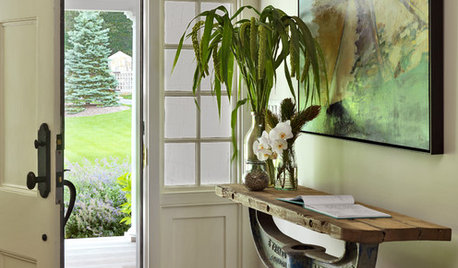
BUDGET DECORATINGThe Cure for Houzz Envy: Entryway Touches Anyone Can Do
Make a smashing first impression with just one or two affordable design moves
Full Story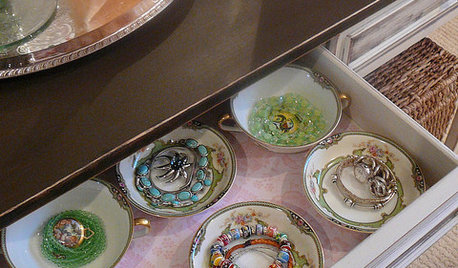
CLOSETSThe Cure for Houzz Envy: Closet Touches Anyone Can Do
These easy and inexpensive moves for more space and better organization are right in fashion
Full Story
GARDENING GUIDESGarden Myths to Debunk as You Dig This Fall and Rest Over Winter
Termites hate wood mulch, don’t amend soil for trees, avoid gravel in planters — and more nuggets of garden wisdom
Full Story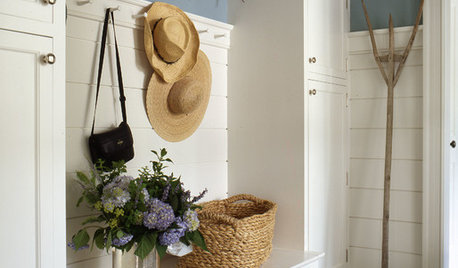
MUDROOMSThe Cure for Houzz Envy: Mudroom Touches Anyone Can Do
Make a utilitarian mudroom snazzier and better organized with these cheap and easy ideas
Full Story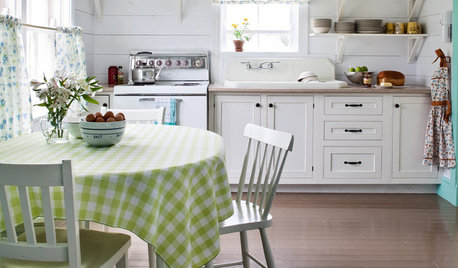
KITCHEN DESIGNThe Cure for Houzz Envy: Kitchen Touches Anyone Can Do
Take your kitchen up a notch even if it will never reach top-of-the-line, with these cheap and easy decorating ideas
Full Story
DECORATING GUIDESThe Cure for Houzz Envy: Family Room Touches Anyone Can Do
Easy and cheap fixes that will help your space look more polished and be more comfortable
Full Story





judyag_44
mountainman_bc
Related Professionals
West Milford Landscape Architects & Landscape Designers · Rancho Cordova Landscape Architects & Landscape Designers · Athens Landscape Contractors · Bell Gardens Landscape Contractors · Belmont Landscape Contractors · East Lake-Orient Park Landscape Contractors · Irvington Landscape Contractors · Columbia Fence Contractors · Laguna Hills Fence Contractors · Plainfield Fence Contractors · Richmond Fence Contractors · Rome Fence Contractors · Columbia Decks, Patios & Outdoor Enclosures · Manchester Decks, Patios & Outdoor Enclosures · Provo Decks, Patios & Outdoor EnclosuresMaggie_JOriginal Author
mountainman_bc
brendasue
Maggie_JOriginal Author
Maggie_JOriginal Author
marquisella
Maggie_JOriginal Author
marquisella
Maggie_JOriginal Author
marquisella
Maggie_JOriginal Author
tchappetta
Cena
Maggie_JOriginal Author
Miss_Kitty
Maggie_JOriginal Author
mountainman_bc
Maggie_JOriginal Author
narcnh
beeliz
GennyM
beeliz
Maggie_JOriginal Author
GennyM
beeliz
Maggie_JOriginal Author
runningtrails
doninalaska
beeliz
pamcleod
runningtrails
kristenmarie
beeliz
Dibbit
goodhors